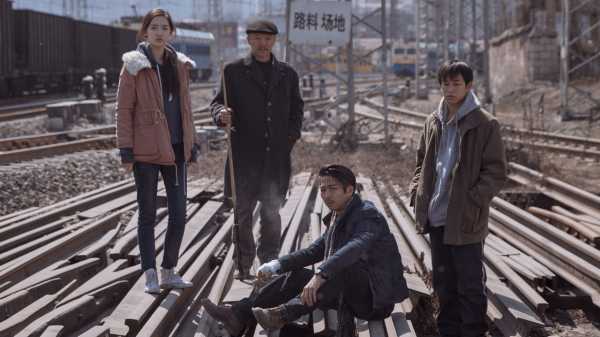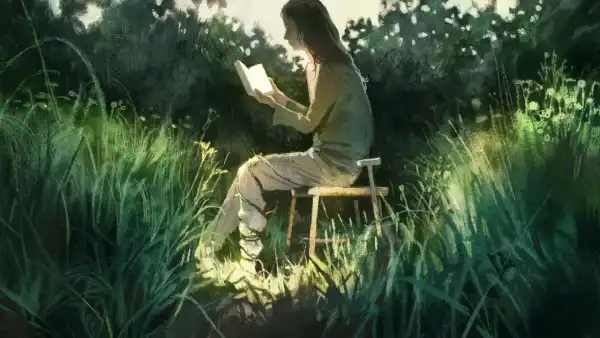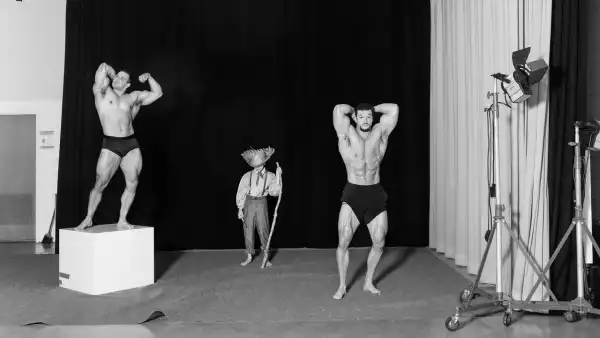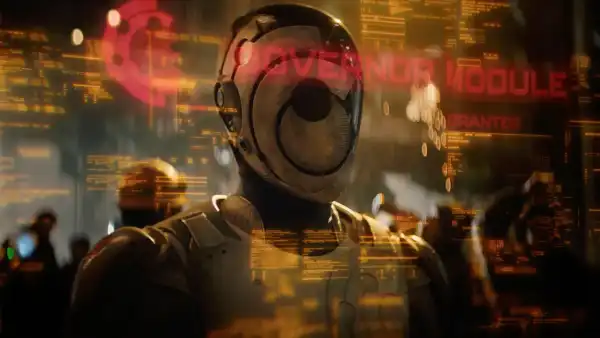
“An Elephant Sitting Still,” the 2017 film by the Chinese director Hu Bo that’s being released this Friday, is one of the greatest recent films; its mighty ambition and mighty power are suggested by its unusual length (it runs nearly four hours) and its distinctive, original style and tone. Yet it’s rooted in a familiar kind of story, a tale of the sort that lesser filmmakers could easily dramatize in familiar ways but which Hu expanded into a vision of life.
The movie, set in a grim and decrepit industrial town in northern China, is centered on a conflict among older high-school students, all around seventeen: a boy named Yu Shuai (Zhang Xiaolong) accuses another, Li Kai (Ling Zhenghui), of stealing his cell phone. Li’s best friend, a boy named Wei Bu (Peng Yuchang), comes to his defense. In a resulting hallway fight, Wei accidentally yet nonetheless gravely injures Yu Shuai, whose older brother, Yu Cheng (Zhang Yu), a local minor gangster, plots revenge, and Wei plots his escape.
“An Elephant Sitting Still” is Hu’s only feature film; he committed suicide in 2017, at the age of twenty-nine, soon after completing the film. Hu’s film premièred at last year’s Berlin Film Festival and was screened in New York nearly a year ago in the New Directors/New Films series. The film is a masterwork of a rare sort, perhaps of a unique sort, among young directors: others, notably Orson Welles, Jean-Luc Godard, and Chantal Akerman, have transformed the cinema enduringly while in their twenties. But all three create aesthetic realms that fuse with personal experiences and philosophical ideas in a sort of preternaturally precocious leap of abstraction.
Hu, by contrast, is as much a documentarian as he is an aesthete; the emotional complexity of his observations are matched by his clear-eyed and uncompromising view of the locale and of his society at large. His youth makes his blend of the observed and the created all the more astounding; he captures a wide range of characters in torrential action which, all the more remarkably, he films with a fine sense of discernment and control. What’s more, his sense of abstraction is less a matter of theory than of a moral distillation—a fiery, irreducible core of purpose that serves as an essential mode of resistance in the face of a civic life under siege. In depicting a society that inflicts cruelty and violence on a large scale and reflects it intimately, Hu has created a crucial modern work of political cinema.
The elephant in question is never seen; it’s an attraction in a circus in a nearby city and it’s introduced in a bedroom discussion in the movie’s first scene, in which a man describes the public’s response to the animal’s passivity: “People watch it, maybe stick it with forks.” That casual remark—suggesting both the public’s casual depravity and the indifference of the authorities—offhandedly sets the tone for the action that follows. Wei, the main character, is introduced at home with his parents—his mother accuses him of theft, his father berates and curses him. Their cold struggle, centered on small sums of money, is rooted in obvious agony; the father isn’t working, and his leg is confined in a large, stiff brace. Meanwhile, the couple, in bed, hear an argument in the street below, in which neighbors furiously dispute the burning of garbage in the alleyway.
Hu weaves several other crucial characters and their dramas into Wei’s orbit and throughout the film. The young man in bed turns out to be Yu Shuai’s gangster brother; the woman with whom he’s having an affair is married, and when her husband discovers her infidelity (in a scene that Hu films with a tension and a rapidity that veteran directors should envy), the results turn quickly deadly. Wei has a romantic interest in Huang Ling (Wang Yuwen), a female classmate, who is involved both with the gangster and with a teacher, leading to overlapping plots of blackmail and social-media scandal. An elderly man (Liu Congxi) who lives with his family (a married couple—his daughter and son-in-law—and their young daughter, his granddaughter) is being forced out of his apartment and into a nursing home so that they can get their child into a better school district.
Fierce and shameless pursuit of self-interest dominate relationships of all sorts—familial, sexual, amicable, romantic, professional. Even the search for a lost dog provides multiple occasions for naked hostility, and the frozen indifference of the authorities to public responsibility is equalled by the aggressive indifference of neighbors to each other. Wei prepares for a street fight by stealing a club with which his father (formerly in some unspecified public function) used to beat detainees. Li gets hold of a gun that, eventually, will go off. Cell phones become intimate surveillance devices to be used for humiliation and extortion.
Street fighting, casual insults, easy rudeness, and brazen scams and frauds among the local citizenry are matched by cavalier political power. The government assigns and demolishes schools with no consultation, shifts large sums and moves large populations with ruthless efficiency yet maintains neither a social safety net nor public facilities. The breakdown of infrastructure, conveyed in shattered ruins serving as housing, garbage and industrial waste piled up in streets, or unreliable toilets flooding, subjects the movie’s characters to daily degradations that pervade every scene. Attempts to gain a foothold of comfort and security, of a better future for children, come at the price of ruthlessly corrupt and corrupting arrangements. The overwhelming blankness of Hu’s vision of no future finds, among his characters, a range of responses that include resignation, reconciliation, self-destructive behavior, even suicide.
Though it’s filmed in color, the movie seems often to be in black-and-white; the watery dimness of grimy and unadorned interiors is matched by the cold and impersonal bleakness of public spaces. Hu, a student of the Hungarian director Béla Tarr, adapts his teacher’s carefully crafted and elaborately staged long takes to his own purposes. Most scenes in “An Elephant Sitting Still” are filmed in roving shots that prowl through corridors, along streets, into and out of elevators, from apartments to streets and back. Hu’s method is no mere theatrical recording or efficient staging; he relies on the dashing, floating, pressing, retreating camera to construct the action and to analyze it dramatically. For Hu, the camera is as much a matter of exclusion from the frame as inclusion. The distance of characters from the camera—who’s facing and who’s not, who’s in and who’s out—is as crucial to the movie’s emotional power as is its action.
The extended takes convey a volatile tension and seethe with the threatened explosion of latent violence, and Hu’s actors offer a similar blend of oppressively disciplined calm barely containing a destructive rage. The director is alert to surprising behavior, to impulsivity and complexity in moments of ordinary confrontation that defy facile psychologizing; Hu’s fluidly yet exactingly composed images reveal their inner logic along with their wider societal implications. His aesthetic sensibility—strong, fierce, integral, relentless—is itself an act of resistance. His vision of the specific agonies of life in present-day China conveys a mighty, universal human despair. Without a glimmer of mysticism or spirituality, “An Elephant Standing Still” is metaphysical.
Sourse: newyorker.com






